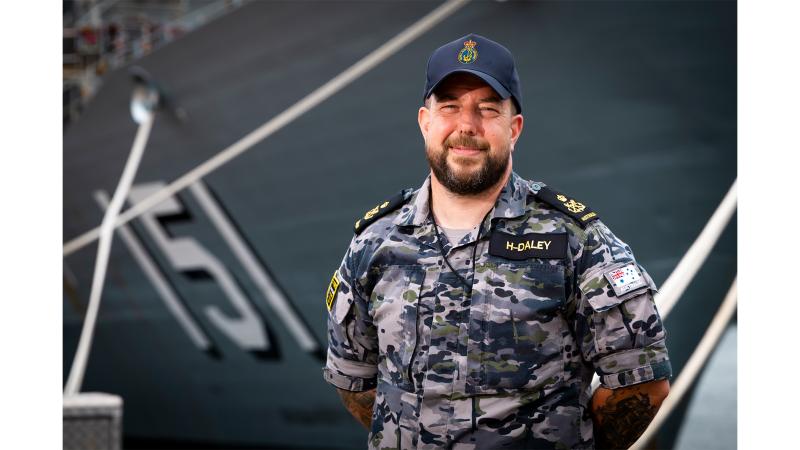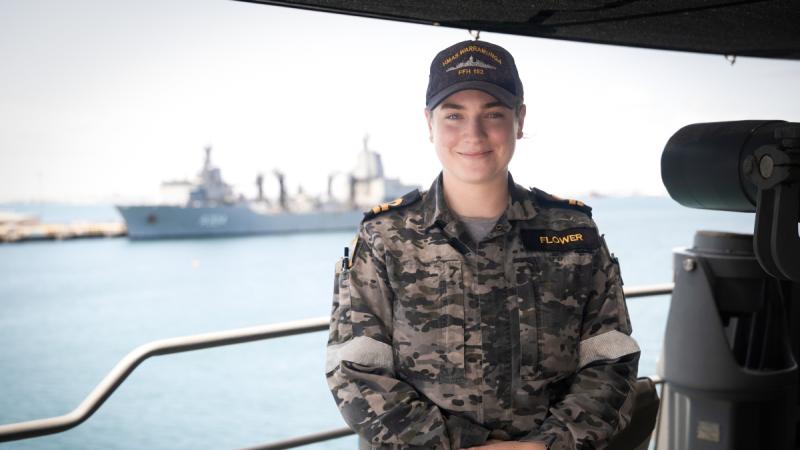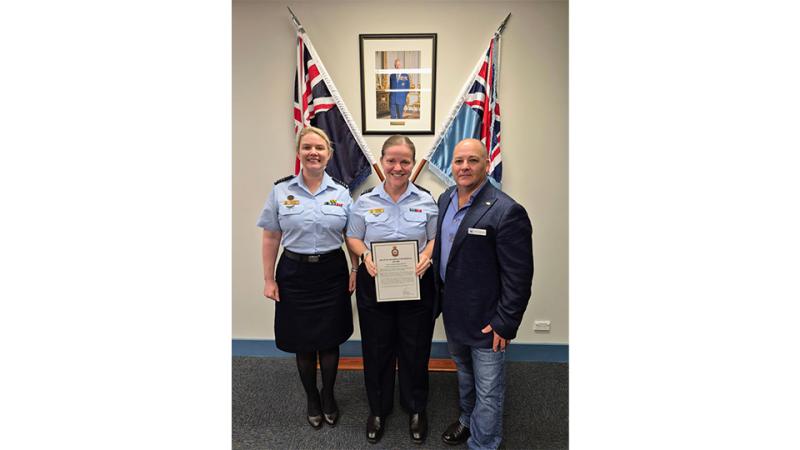19 November 2025
It is 1943, and the world is in the grips of World War 2.
As the Japanese encroach on Australia, a young Jack Tucker decides to enlist in the Royal Australian Navy, eager to serve his country.
The last thing on Mr Tucker’s mind is growing old, let alone becoming a centenarian.
Fast forward 82 years to November 2, 2025, and Mr Tucker is in Melbourne with his family, celebrating his 100th birthday.
A few days after the centenary celebrations, Mr Tucker was back at his aged care home in Anglesea, Victoria, enjoying a well-deserved rest.
When Navy personnel from HMAS Cerberus visited, he spoke warmly about his time in service. Still sharp as ever, Mr Tucker’s humour shone as he reflected on the milestone of turning 100.
“I don’t think I look any different to when I turned 99,” he said.
“They made me go home and fetch my birth certificate when I enlisted, and I still think I look younger than I am.”
Mr Tucker joined the Navy in September 1944, after several attempts to secure a release from his position as a junior clerk for the Victorian Railways.
He enlisted as a coder and was trained at Flinders Naval Depot (now Cerberus) in Victoria, completing both recruit and specialist training, before preparing for service in the Pacific theatre.
“It was obvious to anyone who read a newspaper or listened to the radio, that the Japanese were making inroads and moving south day by day,” Mr Tucker said.
“Darwin had been bombed, as well as Townsville, Wyndham and Derby, and there had been midget submarines in Sydney Harbour.
“This prompted me and many others to take the step and enlist.”
'Though I am sorry not to have served at sea, the work we did at the transmitting station was important.'
As a coder, it was Mr Tucker’s job to transmit and receive coded messages between establishments and ships, using a special piece of equipment known as a TypeX cypher machine.
“The TypeX machine looked a bit like a typewriter,” Mr Tucker said.
“We would set the machine to ‘cypher’ and type a message in plain text.
“The machine would then encipher that message, which was sent to the receiver, who would complete the process with the machine set to decipher.”
In a cruel twist of fate, Mr Tucker suffered an accident that left him with a broken wrist and unable to write. He was due to post to HMAS Ballarat and sail on operations, but remained at Flinders Naval Depot during his recovery, and subsequently worked in the transmitting station.
“We still operated on a 24 hour, one-in-three watch system,” Mr Tucker said.
“We’d have 24 hours off and then go again.
“My mates and I were involved in transmitting, receiving and relaying coded messages all over Australia and to ships like HMAS Australia.”
At that moment, Mr Tucker paused, his gaze distant, as though his mind had drifted back in time.
“I’m glad I served in the Navy,” he continued. “Though I am sorry not to have served at sea, the work we did at the transmitting station was important.
“I also met some of the best people I’ll ever meet, and who I stayed in touch with for many years until they passed.”
To mark Mr Tucker’s 100th birthday, Deputy Prime Minister and Defence Minister Richard Marles recorded a personal video message that was played during the celebrations.
“I really appreciated the video message from the Deputy Prime Minister,” Mr Tucker said.
“It was particularly special that Mr Marles took the time to record a personal message to me.”
Mr Tucker remains a proud veteran and regularly attends memorials, his local Anzac Day march, and remembrance events as often as possible.


